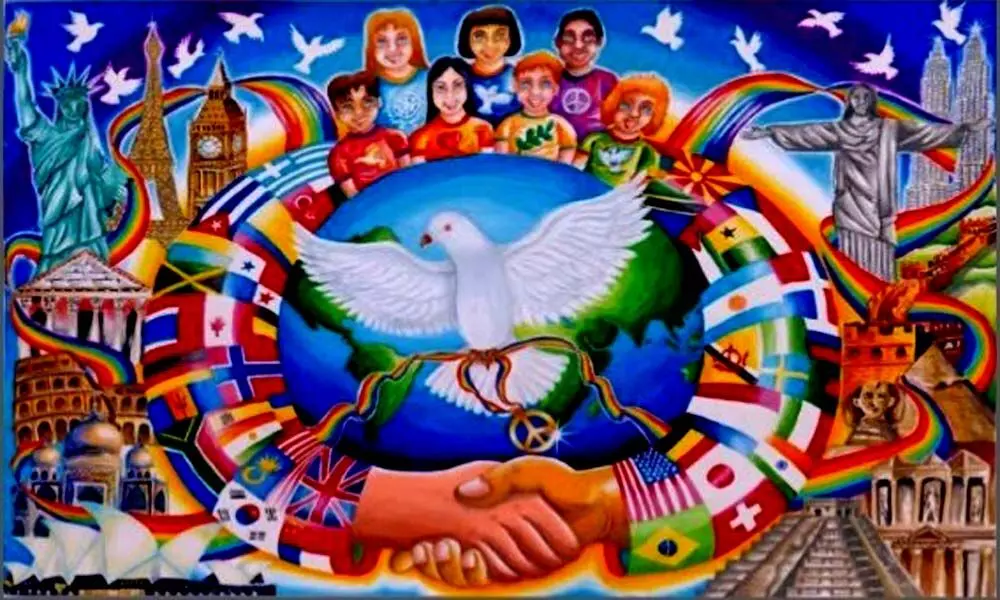Tourism can become the voice of peace
UNWTO says it stands with UN Secretary-General António Guterres in his call for all countries to settle disputes through peaceful means and not through conflict
image for illustrative purpose

After two years of the Covid-19 pandemic, people, as well as our whole societies and economies, have suffered enough. We cannot afford for this to continue. We must rebuild and look to the future with hope, not fear.
Peace and mutual understanding are essential ingredients for recovery. Now is the time to work together, and for diplomacy instead of conflict in all parts of the world. We must not allow political tensions to turn into a man-made crisis that will undermine our collective progress.
Tourism is the main bridge for building understanding. It has a unique ability to promote peace between and among peoples everywhere. The World Tourism Organization (UNWTO) stands firmly with UN Secretary-General António Guterres in his call for all countries to settle disputes through peaceful means and not through conflict, and that they respect international security and justice at all times. As a part of the UN, giving a voice to people of all regions, backgrounds and nationalities, UNWTO also believes that the spirit of international solidarity and shared values that define not just tourism but also our common humanity will prevail.
Tourism is not only the beneficiary of peace, but also a vital force for both negative and positive peace. Tourism should be designed and conducted in a proper way because it has both benefits and costs to local and global economy, society, culture and environment. To hasten the pace of this positive change, the current framework of tourism needs to be changed. If the current one-way flow of tourists from developed countries to developing countries is replaced by two-way flow of tourists, hosts and guests can be interchangeable and can stand on an equal footing. Tourism can lead peace when, it is properly conducted by each actor and when more people can have opportunities to be tourists.
International tourism experienced a 4 per cent increase in 2021, 15 million more international tourist arrivals (overnight visitors) compared to 2020 (415 million versus 400 million). However, international arrivals were still 72 per cent below the pre-pandemic year of 2019, according to preliminary estimates. This follows on from 2020, the worst year on record for tourism, when international arrivals decreased by 73 per cent.
The uplift in demand was driven by increased traveler confidence amid rapid progress on vaccinations and the easing of entry restrictions in many destinations. Before Covid-19, travel and tourism had become one of the most important sectors in the world economy, accounting for 10 percent of global GDP and more than 320 million jobs worldwide. In 1950, at the dawn of the jet age, just 25 million people took foreign trips. By 2019, that number had reached 1.5 billion, and the travel and tourism sector had grown to almost too-big-to-fail proportions for many economies. Tourism-dependent countries will likely feel the negative impacts of the crisis for much longer than other economies. Contact-intensive services key to the tourism and travel sectors are disproportionately affected by the pandemic and will continue to struggle until people feel safe to travel en masse again.
Still, the crisis is being viewed as an opportunity to improve the industry in the medium and long term through greater digitalization and environmental sustainability. The UNWTO has encouraged support for worker training in order to build digital skills for harnessing the value of big data, data analytics, and artificial intelligence. Recovery should be leveraged to improve the industry's efficient use of energy and water, waste management, and sustainable sourcing of food. "In a sector that employs 1 in 10 people globally, harnessing innovation and digitalization, embracing local values, and creating decent jobs for all - especially for youth, women, and the most vulnerable groups in our societies - could be at the forefront of tourism's recovery," says UNWTO Secretary-General Zurab Pololikashvili. As tourism revolves around billions of encounters between people of diverse cultural backgrounds, the sector can foster multicultural and inter-faith tolerance and understanding, laying the foundation for more peaceful societies. Sustainable tourism, which benefits and engages local communities, can also provide a source of livelihood, strengthen cultural identities and spur entrepreneurial activities, thereby helping to prevent violence and conflict to take root and consolidate peace in post-conflict societies.

